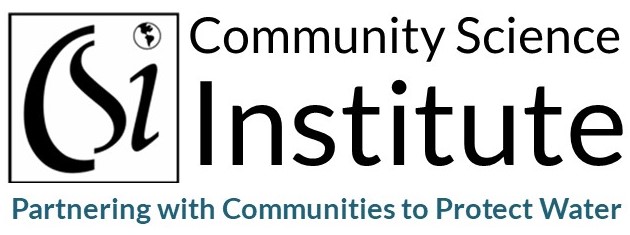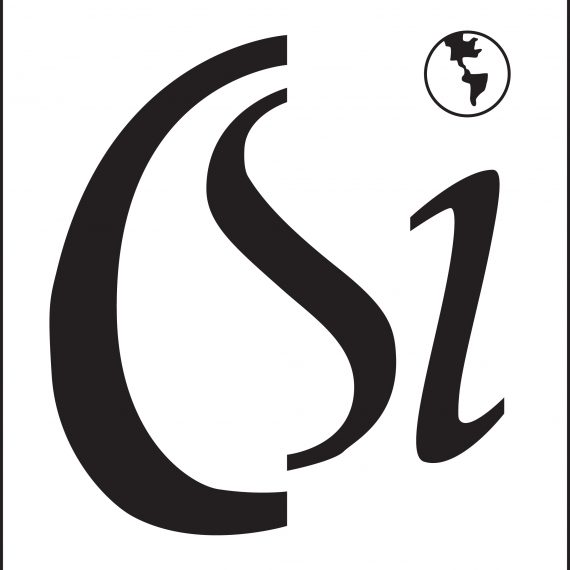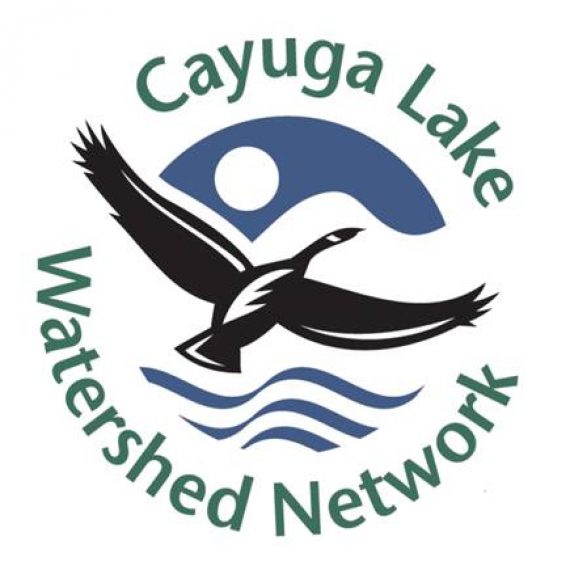Other subcontract tests are available upon request. Contact us for further information and pricing.
Potable and Non-Potable Water Tests & Fees
Potable and Non-Potable Water Tests and Fees
Not sure what to test your water for? Check out our Frequently Asked Questions below for guidance.
Please note ALL samples must be dropped off on ice. Need an ice pack? Ask for one when picking up your sample bottles at the lab!
Not in the area? Visit the ELAP page on the New York State Department of Health website to search for certified water testing labs near you.
Payment must be completed at the time samples are dropped off at the lab. CSI accepts payment in the form of cash, card, or check.
Water Testing Frequently Asked Questions
How do I know if my water is safe for drinking?
While there are many tests that can be performed to determine suitability of water for drinking, the most serious potential health risk is from bacteria. The New York State Department of Health uses the Total coliform/E. coli test as the “basic potability test”, in other words, to determine if water is safe for drinking. The Total coliform/E. coli test gives results in terms of “present” or “absent” per 100 ml of water sample. The allowed level is “absent”, or zero bacteria colonies per 100 ml of water sample. The Total coliform/E. coli test is an indicator test – if bacteria can enter your well, other contaminants can also get in.
(Want to know more about coliforms? Click here for more information)
What should I test my water for?
It depends on many factors. If you are on a municipal water supply, it is probably not necessary for you to test your water. Your water supplier tests the water on a regular basis and would notify you if it was not safe for drinking. You should receive an Annual Report of Drinking Water Quality in the mail once a year, often with your water bill. Contact your water supplier or local health department to find out about your municipal water quality. One exception to this is testing for lead (see below).
If you have a private well, the New York State Department of Health recommends testing your water annually for Total coliform/E. coli bacteria. If you live in an agricultural area, it is recommended to test your water annually for nitrate, which is associated with fertilizers in agricultural runoff.
Regardless of whether you are on a municipal supply or a private well, if the plumbing in your home or that connects your home to a municipal water system is older than 1986, you should test for lead. Lead pipes and solder were banned in New York in 1986. If you are unsure of the age of your pipes and solder and your home is older than 1986, you should test for lead.
Beyond these three tests, choosing what to test your water for depends on many factors. Knowing the current and historical land use in your area is very helpful to determining what water tests you need. In general, if there are not any industrial activities (current or past) then you probably don’t need to be concerned about toxic chemicals in your well. Naturally occurring metals like iron, manganese, and arsenic may be elevated due to local geology. Contact your county health department to ask about local contaminants of concern.
How can I get my water tested?
Decide what you are testing your water for:
- If you are testing for total coliform and E.coli bacteria, you can pick up a sampling kit from the CSI Lab, at Greenstar (West End Store -in the back by the filtered water sink) or Trumansburg ShurSave Customer Service Desk.
- If you are testing for anything other than bacteria, you must come to the CSI Lab to pick up sampling containers. Call the lab if you have questions about containers.
- Follow instructions very carefully to collect the sample. Failure to follow instructions may invalidate your test results!
- Fill out bottle label and paperwork.
- Drop off the sample at the CSI Lab the same day you collect it. Drop off times are Monday-Thursday, 9 AM – 3 PM. If you are unable to drop off a sample during this time, call the lab to make special arrangements.
- Keep samples cold, either in the refrigerator or on ice but do not freeze.
- If you are testing for bacteria, you will receive a phone call the day after you drop off your sample if bacteria is present in your water. Your certified test report will be emailed to you within 10 business days unless you request that it be mailed. Most tests have the option of rushing reports for additional fees.
Does my water sample need to be refrigerated or kept on ice during transport to the lab?
Please bring your water sample(s) in on ice. If there are several hours between the time you collected your sample(s) and when you plan to drop your sample off at the CSI lab, please refrigerate your sample but DO NOT FREEZE your sample. It is best to collect your sample and drop it off in the same day. If you need an ice pack, please ask! Ice cubes in a sealed bag work well too!
What kinds of toxic chemicals might be in my water?
Most private well owners don’t need to be concerned about toxic chemicals in their well water. The best way to evaluate the risk of toxic chemicals being present in a private well is by considering the current and historical land use activities in the area around the well. Due to the vast number of toxic chemicals used in commerce it is helpful to gather as much of this information as possible to pinpoint which tests will be appropriate. Testing for chemicals like Volatile Organic Compounds (VOCs), pesticides or PCBs is advanced and can range from $100-$600 for a single set of tests. If there are not any current or past industrial activities on the land, the risk is probably low. However, if there are or were industrial activities such as large-scale farming, oil & gas extraction, mining, chemical or petroleum storage, dry cleaning, landfills, or manufacturing, the risk is probably worth the expense of testing your water for contaminants related to that industrial activity.
My water tested positive for coliform bacteria. What should I do?
- If your water test for coliform bacteria comes back positive, your water is considered unsafe to drink by New York State Health Department standards. Nearly all private wells will have the presence of coliform bacteria at some point during their life, particularly when newly constructed. Fortunately, coliform bacteria can often be eliminated by making sure your well is in good condition and/or shocking your well with chlorine bleach.
- Shocking your well is something that most homeowners do themselves and can also be done by a professional water treatment or plumbing company. For instructions about how to shock your well visit the Tompkins County Health Department’s page on shock disinfection or contact your local health department.
- You must wait until all of the chlorine is out of your system before re-testing your water for coliform bacteria. This could take up to 2 weeks depending on water usage and flow rate. The presence of chlorine will invalidate your test and payment cannot be refunded. To prevent the frustrating situation of paying for an invalid test, we recommend bringing in a second container of water (in addition to your sample) so we can test the water for residual chlorine. Any type of container will due so long as you rinse it thoroughly. An analyst will perform this free residual chlorine test while you’re still in the office and will turn your sample away if chlorine is still present.
What can I do to take care of my well?
- Private wells are the responsibility of the homeowner. Just like your car or furnace, wells need to be taken care of. Simple steps like keeping fuels and hazardous materials away from your well, maintaining your septic system, checking your well cap and casing for cracks or holes, avoiding the application of lawn and garden fertilizer near your well, and testing annually for coliform bacteria can go a long way toward keeping your well protected.
- For more tips about taking care of your private well visit EPA’s Private Wells website.
How can my water get contaminated?
- Contamination of private wells can be naturally occurring or the result of human activity. The more you know about the potential sources of contamination near your well, the more you can to do protect your well.
- For more tips about taking care of your private well visit EPA’s Private Wells website.
How often should I test my water?
- Annual testing for total coliform and E. coli bacteria is recommended by the New York State Health Department for private drinking water wells. If you live in an agricultural area, testing for nitrates is also recommended annually.
- Testing is also recommended if: You notice changes in water taste, odor or clarity; there is a spill of chemicals or fuels in or near your well (even small amounts); your neighbors find contamination in their wells; you replace or repair any part of your plumbing system; there is a major weather event such as a flood or earthquake; someone in the household is pregnant, nursing, or has unexplained illnesses.
What kind of water treatment system should I install?
The Community Science Institute does not design or recommend water treatment systems. We suggest contacting a water treatment specialist for this information.
My water looks, tastes, or smells funny. What should I do?
While the Community Science Institute does not design or recommend water treatment systems, undesirable smells, tastes or appearances can be an indicator that contaminants may be entering the well. Annual testing for total coliform/E. coli bacteria will help you evaluate whether your well is susceptible to contamination or if the undesirable characteristics are naturally occurring.
For more guidance about undesirable water quality and what to test for, visit the EPA website.
I’m concerned about hydrofracking contaminating my well. What should I do?
The Community Science Institute recognizes that high-volume horizontal hydraulic fracturing presents risks to both private drinking water wells and streams and lakes. In response to these risks, CSI has been offering comprehensive baseline testing of private wells since 2009. Visit the Baseline Testing page for more details.
What’s the difference between water in streams and lakes and the water in a well?
- The water cycle describes the movement of water above, on, and below the Earth’s landscape. Water exists as vapor in the air, as water, snow, and ice on the surface, and underneath the surface as groundwater. As part of the water cycle, groundwater contributes greatly to the water you see in streams, lakes and rivers. When it rains, some water runs directly into streams and some infiltrates into the ground. This eventually makes its way to the surface as stream water, but can take anywhere from days to hundreds of years depending on local geology.
- It is estimated that only 2.5% of all of the water on earth is freshwater, and of this, about 69% is frozen in polar ice caps and glaciers, about 30% is groundwater and 1% is surface water.
- To learn more about the water cycle, visit the USGS website.
How does my well water quality compare to others in this region?
- Despite the fact that more than 6 million New Yorkers rely on private groundwater wells for their drinking water, very little public knowledge exists about water quality in these wells. One potential resource for this kind of information is your local USGS
- The Community Science Institute has been performing baseline tests of private drinking water wells since 2009 for parameters related to contamination from hydrofracking. As part of CSI’s Regional Baseline Initiative, we have asked these homeowners for their permission to anonymously pool and publish these test results in our groundwater database. Our groundwater database is fracking-related and does not contain data on coliform bacteria, nitrates, or lead (common drinking water tests) but it does contain results on over 70 chemicals in each of 300+ wells, such as calcium hardness, radioactivity, total dissolved solids, methane levels, 54 Volatile Organic Compounds including BTEX chemicals, and 16 other analytes.
- You can compare your test results to the results in our online database to see how your water compares to other wells in South-Central New York.



